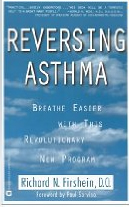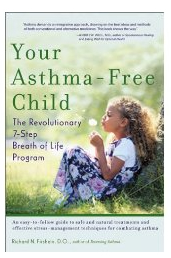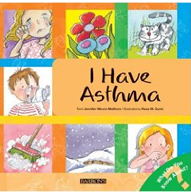Asthma: Natural Management & Treatment
Information, research, causes, symptoms and holistic treatment approaches

🚨 Seek Emergency Care Immediately If You Experience:
Medical Disclaimer: The information below provides a general overview and may not apply to everyone. Any treatment protocol should be discussed with a qualified healthcare practitioner. View full disclaimer.
The Asthma Epidemic
US Statistics
1 in 3
Americans affected by allergies, asthma, autoimmune diseases
Childhood Impact
+200%
Increase in childhood asthma rates
Global Pattern
Almost nonexistent in undeveloped countries, epidemic in industrialized areas
Key Insight: This pattern indicates environmental factors in industrialized societies trigger these conditions. Stress, environmental irritants, toxins, infections, and allergens overwhelm our immune system, causing hypervigilance and overreaction.

Indoor Environmental Toxins
Harmful indoor chemicals can lead to allergies and a host of health problems, including anemia, sinusitis, asthma, chronic fatigue, weakened immune system, cancer, brain damage, and even death.
9-Year Study: 3,500 Adults
Key Finding:
People using cleaning sprays (glass and furniture cleaners) at least once weekly had a 30-50% higher risk for asthma compared to those who used sprays less often.
Recommendation: Use non-spray, non-toxic cleaning products to reduce airway irritation.
Sick House Syndrome
For people with allergies and lung problems, keeping indoor air free of contaminants is crucial.
🌬️ Natural Ventilation
Frequently vent your home and sleep with windows open (if outdoor air is clean)
🔧 Air Filtration
Use quality air filtration systems that kill mold, viruses, and bacteria
Critical Warning: Cockroach Infestations
Large indoor cockroach populations are one of the leading causes of allergies, asthma, and bronchial disorders. Learn about safe control methods.

Clean Air is the Key
Indoor Air Quality
How bad is it and what can you do to improve it? Comprehensive guide to creating a healthier indoor environment.
Ozone Generator Dangers
Important safety information about ozone-generating air purifiers and their potential health risks.

The Obesity-Asthma Connection
Research by Dr. Brian Taylor, Emory University
Study of 3,059 men and women with asthma from the National Asthma Survey reveals significant obesity-asthma connections.
Normal Weight
BMI < 25
Overweight
BMI 25-29.9
Obese
BMI ≥ 30
Obesity's Impact on Asthma:
Dr. Taylor's Conclusion: Excess weight may have a mechanical effect on airway muscles, making lungs more prone to obstruction. The closer you get to normal weight, the more control you gain over asthma.

Lung-Supportive Nutrition
✅ Foods to Eat More
Organic Produce
Organically grown fruits and vegetables reduce pesticide exposure
Cold Water Fish
Cod, salmon, mackerel, herring, halibut - rich in omega-3s
Healthy Oils & Seeds
Extra virgin olive oil, flax seeds
Anti-inflammatory Spices
Rosemary, ginger, turmeric
*Note: Ginger can affect blood clotting
Vitamin C
May reduce severity of asthma, osteoarthritis, rheumatoid arthritis and prevent progression of atherosclerosis and diabetic heart disease.
Vitamin C's application in cancer treatments🫁 Lung-Supportive Produce:
Click here for organic foods guide - cleanest and most contaminated produce lists
Omega-3 fats improve brain function, memory, stress response, immune response, allergies, asthma, and behavioral disorders including bipolar syndrome.
"If you want to prevent learning disabilities in your children, feed them cod liver oil." — David Horrobin, medical researcher
❌ Foods to Avoid/Eliminate
Wheat Intolerance & Celiac Disease
Has been linked to asthma in some patients. Early identification and elimination can significantly improve symptoms.
Milk and Dairy Products
Most commonly cited as increasing severity of asthmatic symptoms. Consider elimination trial under medical supervision. — Reference: World's Healthiest Foods
Aspartame (Artificial Sweetener)
Linked to memory loss, vision problems, headaches, joint pain, asthma, seizures, and various cancers.
May worsen symptoms of fibromyalgia, MS, lupus, ADD, diabetes, Alzheimer's, chronic fatigue, and depression.
Other Respiratory Conditions
Emphysema Support Foods:
General Lung Health:
Apples (also beneficial for emphysema and respiratory health)
Respiratory Support:
Sesame Seeds (beneficial for emphysema and lung health)